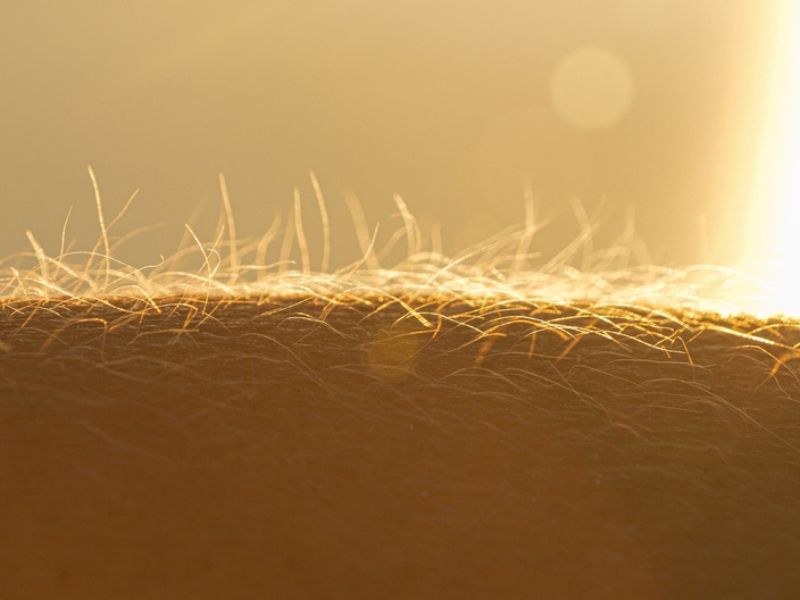Scientists have discovered a group of people capable of causing goosebumps when they desire them. Most people only get goosebumps involuntarily, namely when they’re cold or under intense emotional stress, such as fear, anger, and sadness.
As a result, you probably ignore them when they appear because they will disappear by themselves in time. Why do we get goosebumps, and do they ever pose a health risk? Experts share their thoughts on the topic.

Image Credit: Shutterstock/Iryna Yushko
Goosebumps: What Causes Them?
Dr. Jen Caudle reports that goosebumps occur when the body releases hormones that tighten the tiny muscles surrounding the roots of your body hair. Skin bumps form when the hairs on your epidermis stand straight up due to this tightening.
Besides appearing when you’re cold, these bumps can also occur when experiencing intense emotions, such as fear.
Is It Because Strong Emotions Trigger Them?
Goosebumps may indicate strong emotions, such as fear, anger, awe, pleasure, and surprise, even if you don’t feel cold. It can be triggered by listening to music, appreciating art, or watching a scary horror movie.
It’s unclear why this happens when people experience intense emotions. Internal medicine physician and health expert Dr. Nesochi Okeke-Igbokwe says that adrenaline and “fight or flight” responses contribute to goosebumps.

Image Credit: Shutterstock/Flystock
How Are Chills And Goosebumps Different?
There is a difference between goosebumps and chills, although most people consider them interchangeable.
Okeke-Igbokwe said, “Chills often occur alongside fever due to bacterial or viral infections. You may also shiver when you have chills. In contrast, goosebumps typically occur due to cold air or strong emotions.”
Do Goosebumps Ever Indicate A Health Issue?
Okeke-Igbokwe said, “In some instances, goosebumps can signify a health issue. Certain brain disorders are associated with goosebumps, such as temporal lobe epilepsy.”
It is noted that goosebumps closely resemble keratosis pilaris or chicken skin. There are other skin changes you can observe. Keratosis pilaris causes itchy, red, and dry skin. Consult a dermatologist or doctor if you are experiencing these symptoms.